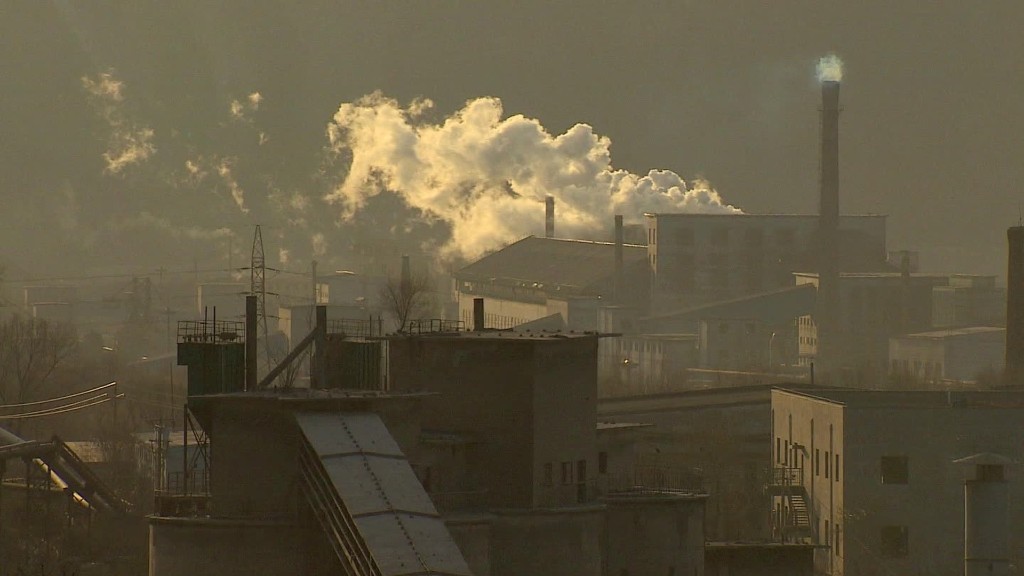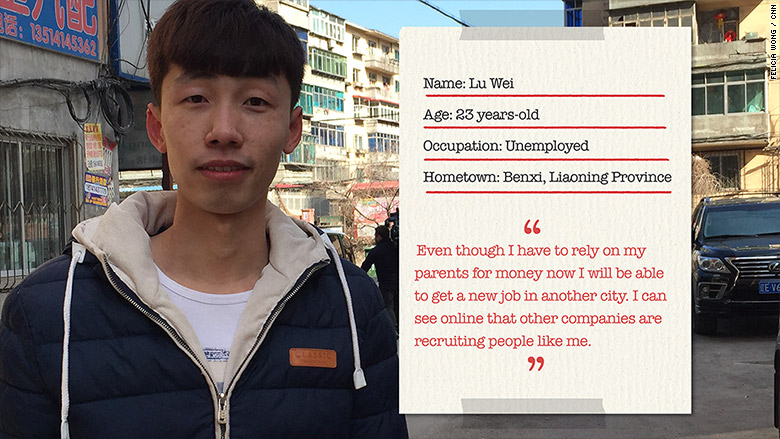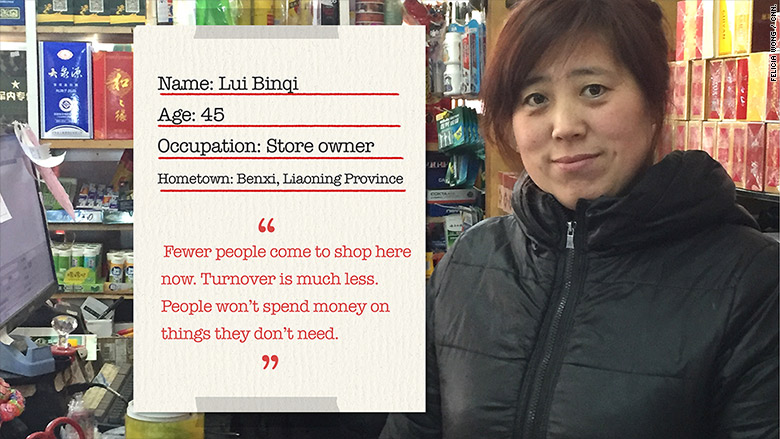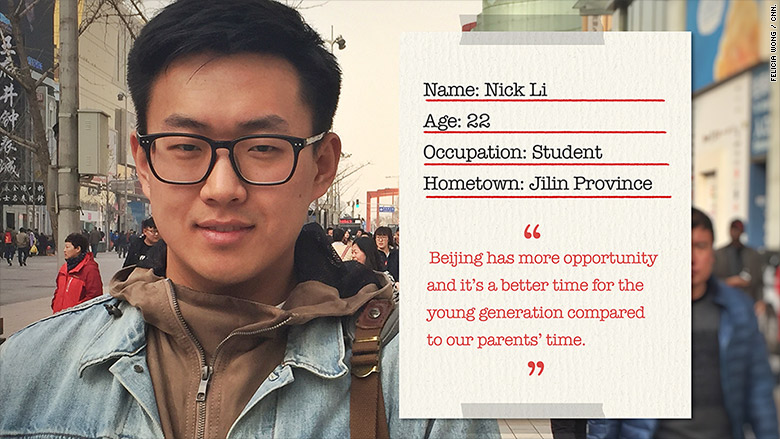
The mural outside the headquarters of the Benxi Iron and Steel company speaks to a bygone age. The heroic workers etched stoking the furnaces of the steel mills represented progress and the future.
Not anymore. Age and pollution have dulled the etching, and the propaganda message has also lost its sheen.
As steel and other heavy industries in China prepare for a round of brutal downsizing, cities like Benxi, in the northeastern province of Liaoning, are starting to feel the squeeze.
Slumping demand has led to a global steel glut, driving down prices. As a result, the Benxi Iron and Steel company has been cutting pay and jobs, according to workers.
It's hard to get clear numbers. The company and its owner, the provincial government of Liaoning, declined to be interviewed.
Workers in this grimy steel city, where the smell of sulfur hangs heavy in the air, were wary of talking to the news media in case the company found out. But nearly all of those who were willing to speak said their pay has been cut in the past year, in some cases by more than half.
Related: China plans to cut 1.8 million coal and steel jobs
'Life has to carry on'
Lu Wei, a 23-year-old electronics technician, said he was told three weeks ago his pay was being slashed by 60% to about $200 a month. He said he's one of the luckier ones because he thinks he can get a better job outside Benxi.
"The factory is not running very well and it's losing money," he said. "Even though I have to rely on my parents for money now, I will be able to get a new job in another city. I can see online that other companies are recruiting people like me."
But that isn't a viable option for many of the workers here.

One man who declined to be identified by name said that he had been made redundant from his job on a pipes and packaging production line late last year. He was then offered day work, which means he no longer gets any company health insurance or benefits.
"I have no choice," he said. "Life has to carry on. I have to work because I have a kid to take care of."
He told us that day workers could expect to be paid about $150 a month. His wife also lost her job at at the company.
Related: China's factories are still losing steam
'People are just buying essentials now'
The shrinking household incomes ripple through to the broader economy here. Lui Binqi has worked at her convenience store near the steel mills for nine years. In the last two, she said, her daily turnover has dropped by two-thirds.
"People are just buying essentials now. They are tightening up on things they don't need, things like cigarettes and alcohol," Lui said. "There used to be 20 or 30 shops around here for the workers. Now there's hardly any."
And it's likely to get worse before it gets better. China's leadership is trying to engineer a transition away from the economy's traditional reliance on manufacturing and investment in infrastructure toward the services sector and consumer-led growth.

Officially, the government says that the steel and coal industries -- the first target for the reform of the bloated state-owned enterprises (SOEs) -- could lose 1.8 million jobs. Analysts say that number could end up significantly higher in reality.
Beijing wants the economy to look more like, well, Beijing. Growth in the capital last year was 6.9%. In Liaoning, it was 3%, the lowest in China.
Related: China sets lower growth target for 2016
Beijing opportunities
A walk through Wangfujing, a Beijing shopping district popular with locals and tourists, gives you an idea of what the leadership appears to be aiming for.
The area is home to local high-street brands as well as international retailers like Zara and Prada. Sitting at the center of it all is a gleaming Apple store, the largest in Asia.
On Sunday afternoon, the streets were busy and full of people in good spirits, many of them carrying shopping bags.
Nick Li, a 22-year-old student from the rust belt province of Jilin, said he was hoping to work in public relations when he graduates. Beijing offers young people chances their parents never had, Li said.

Those opportunities will most likely come from someone like Roger Huang.
The 55-year-old entrepreneur is among those quietly driving change in China. Huang is the founder of online retail company Tegoushe.com, which embodies the two things that the ruling Communist Party says are critical to China's economic evolution: innovation and consumption.
At Tegoushe, which translates to "special purchase" in Mandarin, Huang employs about a hundred people.
Most of them sit among rows in an open-plan office. The space is modern, but modest. Huang's priority is investing in his employees, nearly all of whom are under the age of 30.
He said he pays them almost two or three times the industry average.
"Companies like ours," Huang said, "will provide long-term opportunity for young people."
-- Serena Dong and Felicia Wong contributed to this report.


